HOME > Basketball
120 million in 2 years, dragging down the team! It completely annoyed the future star, and the Warriors senior management miscalculated!
5:30pm, 21 July 2025【Basketball】
When the Western powers set off an arms race in the free market this summer, the silence of the Golden State Warriors was particularly dazzling. The Rockets used Durant, Capela and Finney Smith to form a luxury front line, the Nuggets sent away the premium contract to exchange for Cameron Johnson and Valan to improve the depth of the lineup, while the Clippers completed the lineup upgrade by signing Bills, Lopez and trading. Even the Lakers, whose salary space is short, signed Ayton and Smart! Only the Warriors not only watched the players they like fell into other families one after another, but were also dragged down by Kumingga's contract renewal negotiations. The crux of all this points to the sky-high contract of 120 million yuan for two years - Jimmy Butler became the last straw that broke the Warriors.
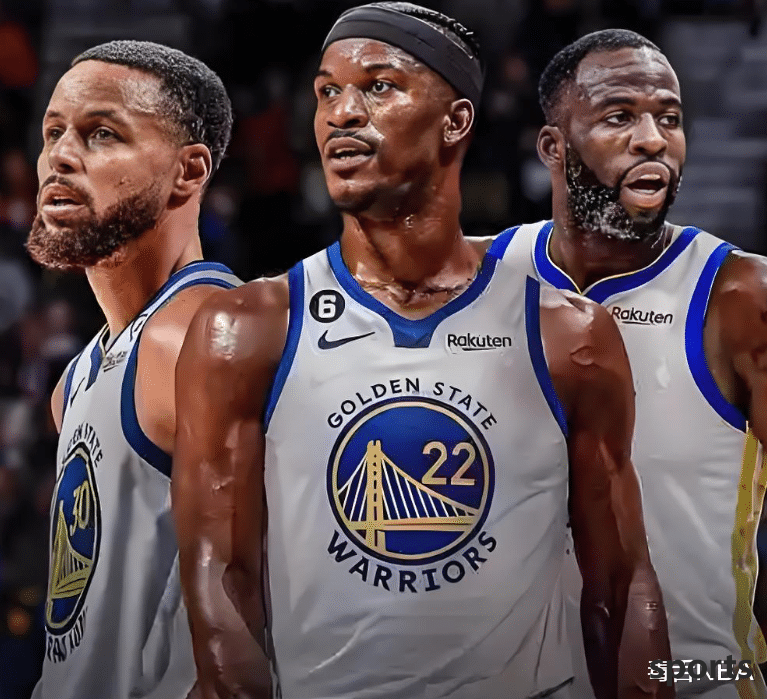
sky-high contract locks in the salary space, and the Warriors missed the reinforcement window
The Warriors' salary list next season can be called the league's "miracle": Although Curry's maximum salary of 59.61 million is a bit expensive, as a champion and team leader, getting so much money is also a reasonable category under the league rules. Zhu Meng Green's annual salary of 25.9 million is not outrageous in the championship system, but Butler's annual salary of 54.13 million is like a time bomb. With the tens of millions of contracts from Moody's, Hilder and others, the total salary of the Warriors' 11-person list has approached US$180 million, far exceeding the luxury tax line.
This salary structure directly makes the team unable to move forward in the free market. Column reporter Singer revealed that the Warriors had already locked in Horford and Melton's reinforcement plan, but Kumingga's deadlock in renewal caused all operations to stall. The root of the Kumingga incident is that Butler's contract squeezes salary elasticity. The Warriors management knows that if Kuming adds an annual salary of 30 million, the team's total salary will exceed 200 million, and the luxury tax penalty may be as high as 150 million, which is a number that no boss can bear.
is more heartbreaking compared to the Western Conference opponent's operations: the Clippers make room through Harden's active salary cut (partial guarantee of 13 million in the second year), the Nuggets get rid of Porter's maximum salary contract for more cost-effective real-time combat power, and the Rockets complete multiple transactions through accurate salary matching. Only the Warriors, who were tied up by Butler's huge contract, could only become spectators in the free market. The conflict with the future star intensified, the Warriors broke down their arms
Kuminga and the Warriors were essentially a chain reaction triggered by Butler's contract. The 21-year-old talented forward has shown superstar potential last season: in four divisional semi-finals where Curry retired from injury, he averaged 24.3 points per game and shot 55.4% from the field, becoming the team's most stable scoring point. Such performance made its team believe that an annual salary of 30 million is a reasonable asking price.
But the Warriors' situation is extremely embarrassing: giving 30 million will completely lock the space, and 20 million will be difficult to appease Kumingga. The team reporter Kavahami said bluntly that the team wanted to renew the contract at a high price and then switch the deal, but found that no buyer was willing to take over, and it was difficult to renew the contract at a low price! The transaction value of Kumingga has long been diluted by Butler's contract. What's even more fatal is that Kohl publicly stated that "Kuminga cannot coexist with Butler", and this sentence completely destroyed the foundation of trust between both sides. Behind
Kuminga's tough attitude is the hurt professional dignity. As the No. 7 pick in 2021, he has never been able to get a stable role in the Warriors system. Now he sees that the team would rather pay $120 million in maximum salary for 36-year-old Butler, but is stingy with a reasonable offer to himself. It is normal to have a desire to leave. As the league executive said anonymously: "The Warriors would rather spend money on a veteran who has passed the peak than cultivate the core of the future. This is the worst management decision."
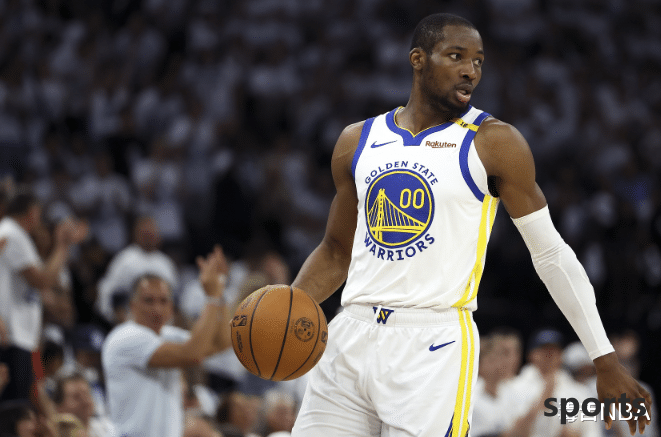
High salary and low ability are revealed, but Butler's difficulty in taking on the core responsibilities
Butler's contract premium problem was fully exposed in the playoffs. Last season's divisional semifinals, Butler, as the team's second-center, averaged only 20.3 points per game and shot 45.8% from the field when Curry was absent due to injury. Such data is in a dazzling contrast with its annual salary of 54.13 million. You should know that Antetokounmpo, who is of the same price, averages 31.7 points per game in the playoffs and Tatum 29.9 points. Even 38-year-old James can hand in a report card of 24.5 points.
What is even more worrying is Butler's downward trend. After coming to the Warriors, he averaged 18 points, 5.5 rebounds and 5.9 assists per game in the regular season, which was a significant decline compared to his peak performance during the Heat. The decline in playoff efficiency has become even more fatal. The label of "hard solver" has gradually faded. When facing the Timberwolves' forward defense in the playoffs, they made many mistakes at critical moments. According to statistics from the US media Sports Illustrated, Butler's real shooting percentage in the last five minutes of the playoffs has dropped to 47.3%, ranking 32nd among all stars in the league.
Age and injury hazards make this contract even more ridiculous. Butler, who is about to be 36, has missed 37 regular season games in the past two seasons, and has repeatedly suffered an old injury to knee tendonitis. And his contract will last until the 26-27 season, when the 38-year-old he can still receive 56.83 million - even more than the possible annual salary of Curry at that time. As commentator Perkins said: "This is not a pension contract, it is a money grab contract." In fact, Butler is a big bet by the Warriors management, and it is also a substitute for Durant. After being unable to trade Durant, the Warriors management had to gamble Butler in order to appease the emotions of veterans such as Curry and Green! The crisis of aging has intensified, and the Warriors are confused in the future. The "aging" crisis of the Warriors has reached a critical point. Curry is about to be 36 years old, Green is 34 years old, Butler is 36 years old, and Hilder is 33 years old. If Horford, who is 39 years old, the total age of this core lineup will exceed 180 years old, becoming the most "senior" starting group in the league.. Comparing the Clippers' lineup structure: Harden takes the initiative to cut salary and retains flexibility. Daluo's annual salary as a substitute is only 8 million yuan. Bill is at his peak at the age of 32, and Leonard is still at the peak at the age of 34. The Warriors' age structure is obviously at a disadvantage.
What is more fatal is that the team loses the possibility of the future. Kumingga's forced departure means that the Warriors missed the last young player who can shoulder the future. Although Moody's has potential, the upper limit is significantly lower than that of Kumingga. If Kumingga eventually leaves as free, the Warriors will face the ending of "a waste of money" - they neither gain immediate combat power nor lose potential stocks.
Management's decision-making mistakes are continuing to ferment. The price paid to get Butler was not only a lock in the salary space, but also a tear of the team's culture. Curry's leader authority is challenged, Green's "dressing room voice" is diluted, and young players cannot see hope for growth. Warriors' team reporter Slater revealed that the atmosphere in the training hall has dropped to freezing point, and the veterans and young players' camps are clearly in opposition.
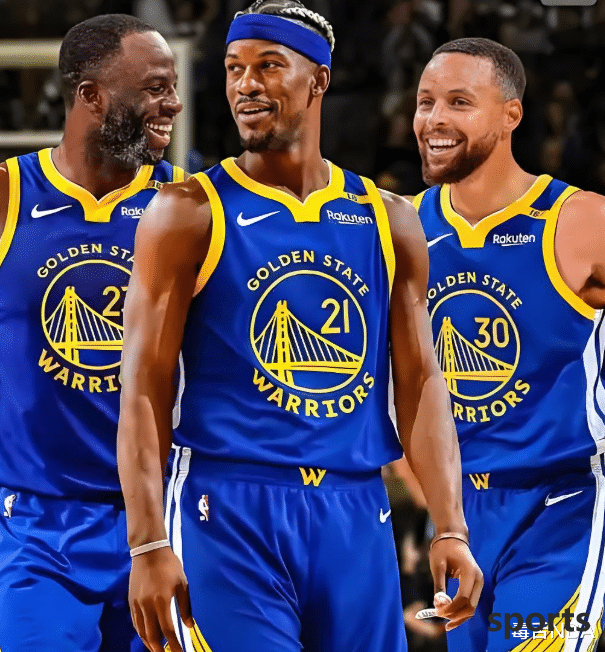
Conclusion: A typical case of one step wrong. The dilemma of the Warriors is the inevitable result of short-sighted decisions at the management. Using 120 million to lock in a star who is about to pass out in two years not only sacrifices the current reinforcement flexibility, but also destroys the foundation for future reconstruction. When Kumingga's team insisted on asking for a price of 30 million, it was actually a silent protest against the Warriors' decision-making level - why can a decline veteran get 50 million, while a rising star can only accept 20 million? The window of the free market is closing, and the Warriors' dream of winning is getting farther and farther away. While Western opponents improve their competitiveness through reasonable operations, the Warriors are getting deeper and deeper in Butler's sky-high contract quagmire. This signing is destined to be a classic case of "the most failed contract" in NBA history, and may also become the most regrettable footnote of Curry's peak at the end of his peak. As the legendary O'Neal said: "Sometimes, the more money you spend, the further you are from the championship - the Warriors are proving this."
Related Posts
- As expected! Reporters posted netizen prediction votes: 60% successfully predicted that James would not announce his retirement.
- A star who may retire in the NBA in the past five years. Time always says goodbye
- +1! The fourth player this summer goes abroad and joins the overseas league and is expected to become the next Yang Hansen
- Adebayo s girlfriend is too strong: He won 6 consecutive victories with 30+16, breaking the record and becoming the first person in WNBA history
- The Chinese men s basketball team will see a blowout talent in the next Olympics, and Yao Ming s dividends will gradually be reflected!
- NBA Rockets News: Renewal with Tate
- Wiggins takes a family on vacation and earns 250 million yuan. The Lakers want to trade him, and his wife has a good figure
- Heroes cherish each other! Pierce praised Kobe as the second Jordan, saying that defending him is very stressful
- NBA Playoffs: Unexpected 3-1, Kaiyong is in trouble, Nuggets Thunder King Mountain
- Chasing dreams and mocking Dillon was criticized by American netizens! James was caught in a gunfire!
Hot Posts
- As expected! Reporters posted netizen prediction votes: 60% successfully predicted that James would not announce his retirement.
- A star who may retire in the NBA in the past five years. Time always says goodbye
- +1! The fourth player this summer goes abroad and joins the overseas league and is expected to become the next Yang Hansen
- Adebayo s girlfriend is too strong: He won 6 consecutive victories with 30+16, breaking the record and becoming the first person in WNBA history
Recommend
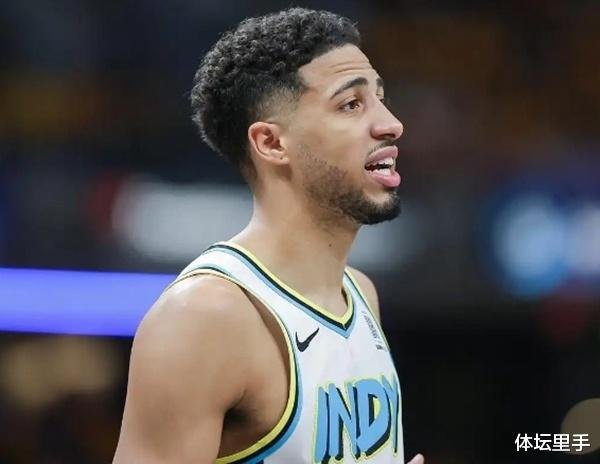
4 points and 5 assists! The hero turned into an undercover agent, the Eastern Conference team suffered a 22-point defeat, and lost 18 frontcourt rebounds

Xiaoka is still training and preparing for the Clippers: US media analyzes that termination of the contract is unrealistic, and the contract is only 100 million yuan in two years.

The Warriors suffered a blow before the opening game. The 23-year-old guard was determined to rest, and the two forwards were also injured.

Inheritance! Zhao Jiwei: I hope Halliburton will teach Yang Hansen the experience, and the latter agrees

Missed 4 years 229 million! 345 million in 5 years! Doncic s chips are too difficult, the NBA is just a business
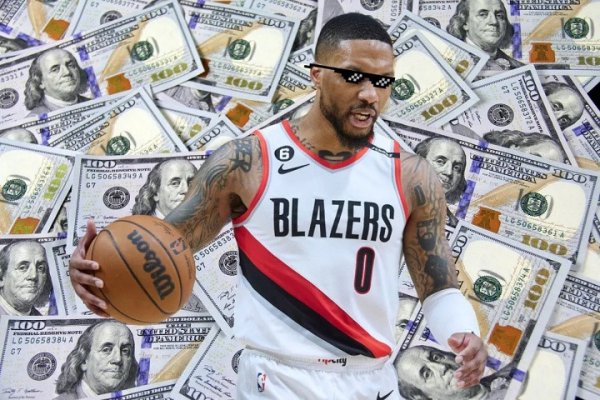
Recovering with peace of mind! Shams: Lillard s salary covers two contracts for a total of $70 million
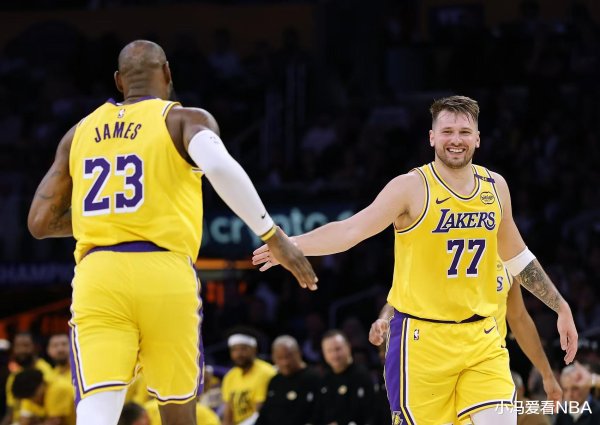
Doncic gives whatever he wants, James is completely marginalized! The Lakers sign Smart with far-reaching intentions
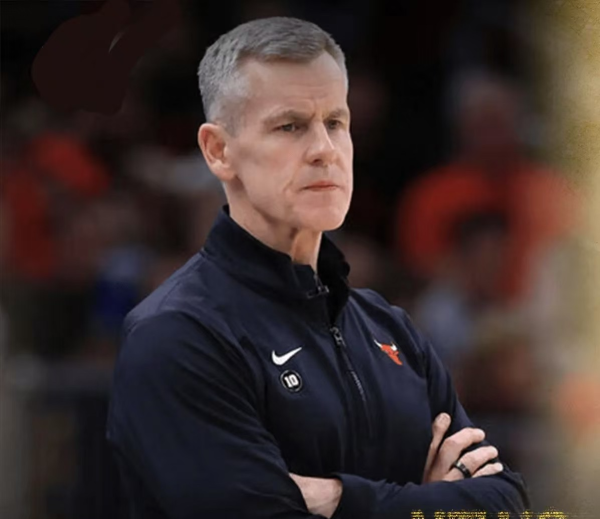
Knicks management s slutty operation has caused media ridicule, Barkley: Knicks are the stupidest team